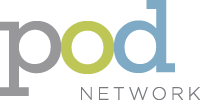Jim Westerman, Appalachian State University
Motivating Generation Y in the Classroom
Generation Y students have matured and developed in an artificial, technologically-centered environment significantly different from what prior generations have experienced. This essay examines the impact of this environment on student classroom expectations and provides suggestions for how faculty can adapt their pedagogy to be successful.
Ludy Goodson, Georgia Southern University
Student Plagiarism: How to Maintain Academic Integrity
Plagiarism detection tools undermine academic integrity when they ignore student copyright protections, contribute to a vendor’s unauthorized commercial gains, fail to detect many forms of plagiarism, and require instructors to do the real detection. By becoming aware of these realities and possibilities, instructors can develop more effective strategies to reduce plagiarism while simultaneously enhancing students’ academic performance.
Nancy Simpson, Texas A&M University and Laurel Willingham-McLain, Duquesne University
Incorporating Course-Level Evidence of Student Learning into Program Assessment
Assessment works well when it draws on faculty expertise and is integrated into students’ daily learning experiences. This essay argues for course-embedded assessment and outlines sound practices, practical steps, and examples.
Barbara Millis, Lesley Sheppard, and Gosia Samojlowicz, University of Nevada-Reno
Microteaching to Maximize Feedback, Peer Engagement, and Teaching Enhancement
A proven, highly structured microteaching model that goes beyond mere presentation skills and “shooting-from-the-hip” group feedback has successfully prepared both faculty and graduate students for their teaching responsibilities. This approach uses a three-part process: (1) presentation; (2) one-on-one feedback from mentor while the group, using structured roles, prepares feedback; and (3) group feedback that is both constructive and consensus-based.
Michael Reder, Connecticut College
Everything You Always Wanted to Know about Writing (But Were Afraid to Ask)
What should all faculty know about using and assigning writing inside and outside of the classroom? This essay offers ideas for faculty to use writing to help students learn material, strategies for designing and sequencing formal written assignment, and a well-tested (and time-saving) framework for offering students feedback on their writing.
Leora Baron, University of Nevada, Las Vegas
Information Literacy: Imperatives for Faculty
With the burgeoning of information, and especially the unfettered growth of online information, long-held assumptions about students’ access to and interaction with information have to be re-evaluated. Faculty play a key role in ensuring that information literacy skills are acquired and practiced at all levels of instruction.
Richard Holmgren, Allegheny College
Opening the Door: Creating Institutions that Support Teachers and Learners
As faculty, we too often feel overwhelmed by an excessive workload, an unfriendly administration, and an unforgiving evaluation system. In this essay, we explore initiatives we can reasonably expect to implement to create an institutional environment in which we can develop and flourish as teachers.
Laura L. B. Border, University of Colorado at Boulder
When Disability Enters a Teachers’ Life, Must the Teacher Stop Teaching?
Disabilities are usually discussed in academe in the context of the undergraduate student population; nevertheless, graduate students and faculty also represent a certain percentage of persons with disabilities. This essay presents a case study and an analysis of a consultation with a graduate instructor, inviting us to examine the issues of disability in the life of a teacher.

